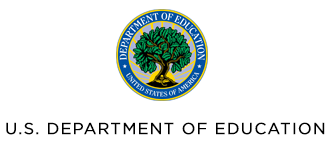
U.S. Department of Education sent this bulletin at 04/23/2020 02:30 PM EDT
FOR IMMEDIATE RELEASE
April 23, 2020
Contact: Press Office
(202) 401-1576 or press@ed.gov
Flexible CARES Act funds empower state and local education leaders to think creatively to address student, educator needs during national emergency
WASHINGTON – U.S. Secretary of Education Betsy DeVos announced today that more than $13.2 billion in emergency relief funds are now available to state and local education agencies to support continued learning for K-12 students whose educations have been disrupted by the coronavirus. This funding is allocated by the Coronavirus Aid, Relief, and Economic Security (CARES) Act, which was signed by President Donald J. Trump less than a month ago. Education leaders will have the flexibility to use funds from the Elementary and Secondary School Education Relief Fund (ESSER Fund) for immediate needs, such as tools and resources for distance education, ensuring student health and safety, and developing and implementing plans for the next school year.
“This national emergency continues to shine a light on the need for all schools to be more agile,” said Secretary DeVos. “Now is the time to truly rethink education and to get creative about how we meet each student’s unique needs. The funding made available today has very few bureaucratic strings attached and empowers local education leaders to do just that. I encourage them to focus on investing in the technology, distance learning resources, training and long-term planning that will help education continue for both teachers and students, no matter where learning takes place.”
Local leaders are empowered with the flexibility to determine how to use their ESSER funds, as long as they are used in ways that comply with applicable federal education laws. The ESSER Fund has important safeguards in place to ensure that this funding goes to help students continue learning. State education agencies (SEAs) must allocate 90% of their ESSER funds to local education agencies (LEAs), including public charter schools, in proportion to the amount of FY 2019 funds the LEA received under Title I, Part A of the Elementary and Secondary Education Act. Up to 10% of the SEA’s award may be retained for the state agency to use to address needs related to responding to coronavirus. After one year, SEAs must return any funds that have not been awarded, and the Secretary will reallocate those funds to the states. To see state allocations for the ESSER Fund, click here.
The Department implemented a streamlined process for states to apply for and receive this critical funding by cutting red tape and removing unnecessary delays. SEAs have until July 1, 2020, to apply for ESSER funds by submitting a simple signed Certification and Agreement form to ESSERF@ed.gov. The Department intends to process each submitted form within three business days of receipt. For more information, click here.
The funding allocations announced today are part of the nearly $31 billion Congress allocated to the Department to distribute to students, K-12 schools, and higher education institutions. The Department, at the Secretary's urging, has continued to make funds available as quickly as possible.
Today’s action follows the Department's earlier announcement of a turnkey waiver process allowing states to cancel federally mandated standardized testing in response to widespread school closures in the wake of the declaration of a national emergency. The Department also developed a streamlined process for providing states with funding flexibilities so that they can repurpose existing K-12 education funds for technology infrastructure and teacher training on remote learning and to move resources to areas of highest need. The Department also moved quickly to provide guidance on ensuring students with disabilities have access to distance learning opportunities and to provide an extension for states that need additional time to develop career and technical education plans under the Strengthening Career and Technical Education for the 21st Century Act (Perkins V).
The Department continues to update ed.gov/coronavirus with information on COVID-19 for students, parents, educators and local leaders.
For more information about COVID-19, please visit the following websites: coronavirus.gov, cdc.gov/coronavirus/2019-ncov/index.html, and usa.gov/coronavirus.








